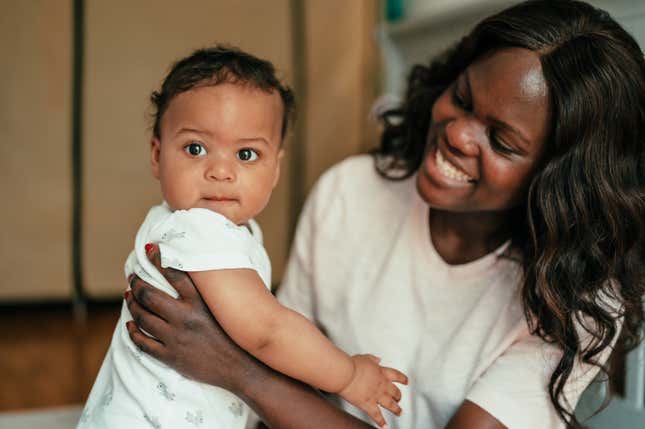
Yesmin Holmes was living in transitional housing when she received a call from the last place a mother wants to hear from. “Somebody had called child services,” said Holmes, a Black mother who lives in Washington, D.C., with her three children. “They said there were marks on my son, that I’m smoking in front of him, and all these kinds of things.”
Because she was in transitional housing, Holmes was already taking regular drug tests. And after examining her son, speaking with his father, and checking the home, Holmes was cleared. But the investigation still stuck with her. “It was a scary moment,” she says. “I thought they were taking away my child.”
Although Holmes says she isn’t sure if her financial situation directly contributed to the investigation, research has consistently shown that lower-income people are significantly more likely to be the subject of child welfare investigations. Black families are also disproportionately the target of child welfare investigations and removals.
In Washington, D.C., Melody Webb, the executive director of Mother’s Outreach Network, is trying to disrupt those links. Webb’s pilot program, Mother Up, provides monthly cash assistance to Black mothers who’ve been involved with the child welfare system.
“What I found in my works as an attorney who represented parents whose children had been removed was that the families were deeply impoverished; they were housing insecure,” she says. “And, of course, having a child removed impacts your eligibility for most benefits, including housing. And so they were made worse off and less capable of providing for their families as a result.”
The vast majority of child welfare cases in this country are for neglect, explains Webb, a concept that is often deeply connected to poverty. Things like not having stable housing or lacking adequate child care can all fall under neglect.
“Poverty is such a driving factor behind these removals,” says Webb. “We essentially see this as an issue of punishing people for being poor by tearing apart their families.”
The focus of the pilot program is to test whether guaranteed income can help disrupt some of the factors leading to removal. One group is receiving $500 a month for three years. And a separate group will be paid a stipend to compensate them for their time in the study.
Holmes is among the mothers receiving $500 a month. And she says it’s been a game changer. Not only has it helped her move into a new home with her children, she’s been able to pay for her son’s school uniform and save for her and her kid’s future.
“I wish it was for everyone,” said Holmes. “Being a single mother is hard. I know the nights where you just want to cry [because] you don’t know how you’re going to pay for this.”
Webb says she hopes to expand the program in the future. “Our goal is to get passed into law on the federal level, a guaranteed income program,” she says. “We really believe that a cash intervention is the answer to preventing a large number of cases from being opened in the first place and interrupting involvement where it’s already occurred.”

